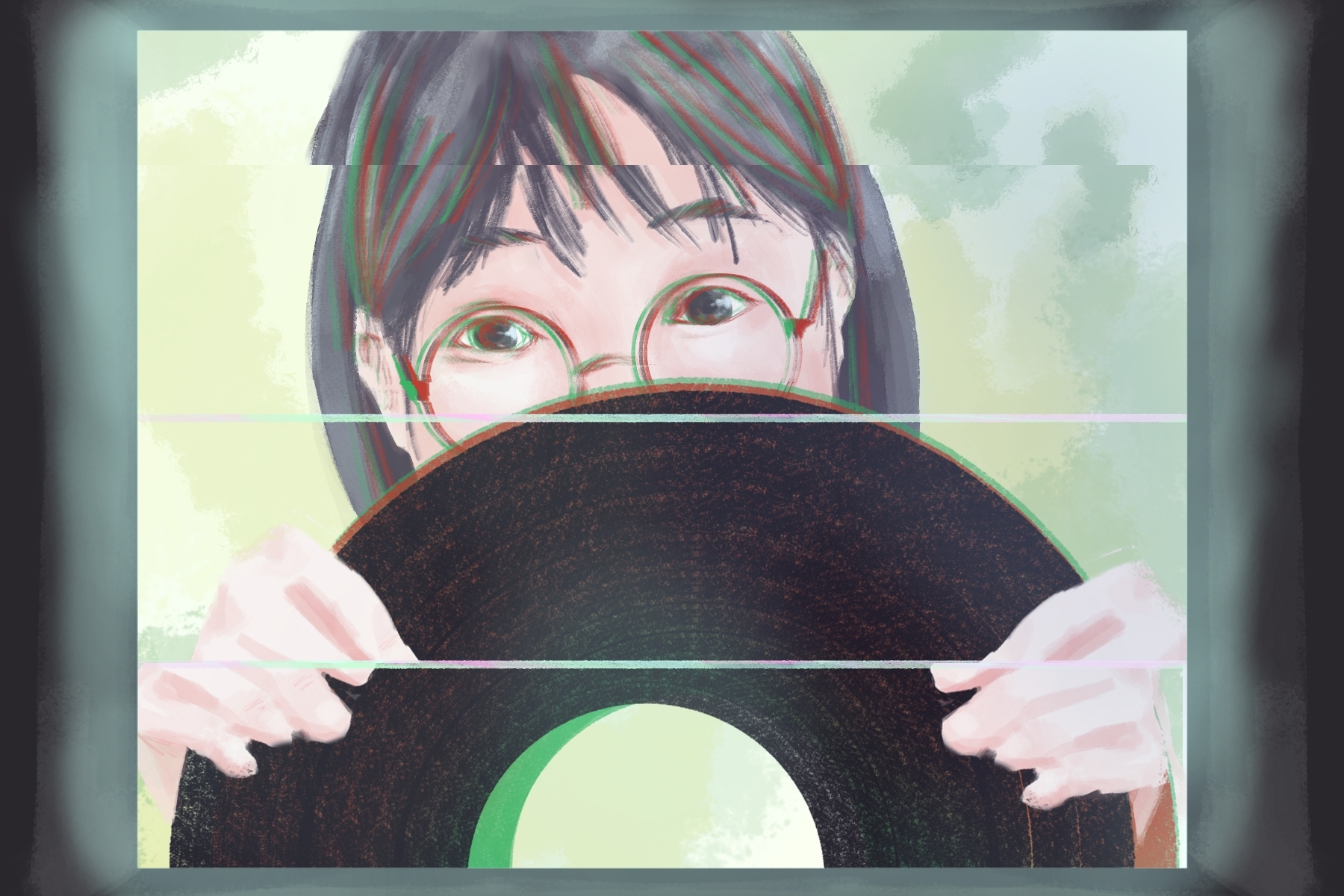Yaeji is a rising artist who blends house, rap and electronica. She began her music career as a DJ and went on to release two EPs in 2017: “Yaeji” and “EP2.” On these EPs, she explored, among other topics, mental illness and identity. Her newest and longest release, “WHAT WE DREW 우리가 그려왔던,” has been highly anticipated. It draws inspiration from indie, R&B and electronica, tying in Yaeji’s signature hushed vocals for a distinctive sound.
Yaeji stated that “the mixtape signifies a lot of growth for [her], and within it these tracks are various short stories of [her] journey along the way.” The mixtape touches on her experiences with family, growing up and learning to take care of herself.
The first track of “WHAT WE DREW 우리가 그려왔던,” “MY IMAGINATION 상상,” starts with synthy rises and a groovy bass. Yaeji rhythmically chants “my imagination” in Korean on top of the soft drums. The song is slow and repetitive: Yaeji said she “wanted it to feel really smooth and continuous, almost cyclical, but in a way that felt relaxing. It’s a way to ease you into the next song.”
While the song could be written off as underwhelming, the short track does just enough to keep the listener engaged with rich sounds. “MY IMAGINATION 상상” can be appreciated for its simplicity and sets the tone for the rest of the record.
“WHAT WE DREW 우리가 그려왔던” is the next song on the mixtape. It begins with slow hums, rhythmic drums and smooth drawn-out vocals. The song is heavily layered with echoes and beats.
It builds slowly, adding new dynamic elements to the song like synthesizers and background voices, and eventually turns up-tempo. On the track, Yaeji said she “was going through a lot of transitions and growing pains. In the midst of all that darkness, [she] was able to stay positive because of family around [her].”
The music video for “WHAT WE DREW 우리가 그려왔던” is an ode to what Yaeji treasures the most: family, friends and her identity. It features her grandfather, close friends and references to her Korean heritage (plus an onion, which Yaeji nurtures throughout the video).
They are seen sharing meals, cooking together and pouring tea for one another. The warmth of the song contrasts with the heavily electronic sound, which would often be associated with futurism. Instead, the electronic beats capture the warm feeling of being with loved ones — a concept the mixtape thoroughly explores.
The third track, “IN PLACE 그 자리 그대로,” also starts gentle and quiet, with the song building on top of itself. Yaeji’s voice reverbs in whispers in the backtracks while a deeply auto-tuned voice chants the chorus. The track ends with lagging and cut-off vocals, feeling broken and sinister.
Yaeji’s whispery voice introduces “WHEN I GROW UP.” The song is half auto-tuned, half raw vocals. The beat is simple, but Yaeji’s lyrics provide clever commentary on what she described as “the concept of a younger [her], or a younger person, imagining what it’s like to become an adult.”
She sings “when you grow older, do you quit it ‘cause you feel lazy, you feel crazy, you’re hurt maybe, you don’t have room to say maybe no more.” The track mixes synthesizer with breathy vocals for a juvenile sound, teasing at the idea of a child growing up.
The tone of the mixtape turns from carefree electro beats to a heavier, R&B influence with, “MONEY CAN’T BUY (ft. Nappy Nina).” The song is filled with synths, catchy beats and rap. Yaeji’s voice remains feathery throughout, but she’s heavier and more assertive.
The song sounds like a diss track as Yaeji says, “wanna do, what I wanna do.” Instead, the song is about friendship and treasuring what money can’t buy. Considering the topic, Yaeji’s serious tone not only adds an element of playfulness to the track but also communicates another message: She takes the relationships with her loved ones seriously.
“FREE INTERLUDE (ft. Lil Fayo, trenchcoat, Sweet Pea)” starts aggressive, with hard-hitting rap. High-pitched, auto-tuned voices provide polarity against the old-school hip-hop-inspired beat. The track almost sounds psychedelic as backtracks cut out, rewind, slow down and speed up, but it remains coherent and provides a bridge to the second half of the album.
Sweet and upbeat, “SPELL 주문 (ft. YonYon, G.L.A.M.)” mixes J-pop with hip-hop. It begins with soft-voiced YonYon. She sings delicate Japanese verses and is met by Yaeji’s electrified Korean verse, which eventually transitions to G.L.A.M.’s smooth rap. The last section of the song slows down with chillingly sluggish verses and a lethargic drum beat, hinting at more sinister undertones.
“WAKING UP DOWN” is a catchy electro-pop rap, where Yaeji talks about daily life tasks. She monotonically sings: “I got waking up down, I got cooking down, I got making a list and checking down, I got hydrating down, I got listening down.”
While the track could be dismissed as simply touching on what it means to become self-sufficient as an adult, Yaeji delves deeper into what these small actions mean to her. The song continues, “it’s not easy, there’s no such thing as easy. If I’m lazy, they say it’s all my fault.” She explores the self-discipline it takes to wake up, cook, make sure you drink enough water and take care of yourself — something that many begin to adjust to on their road to adulthood.
The trend of monotonous verses continues at the start of “IN THE MIRROR 거울,” which slowly builds rising synthesizers behind repetitive chants. The song remains steady until the middle, which explodes with dynamic beats and up-tempo choirs.
Yaeji said she “really wanted to try singing in a way that feels like [she’s] unleashing pent-up energy.” The song sounds like the essence of hazy emotions and the build-up behind being upset and experiencing your feelings in full. Yaeji stated she took inspiration from being in the airplane bathroom, as she believes “being up in the air makes you more emotional.”
Snazzy snaps and smooth reverbing voices kick off philosophical, “THE TH1NG (ft. Victoria Sin, Shy One).” The track is soft and breathy and talks about “an introspective stream of consciousness of what is this ‘TH1NG.’ It sounds really abstract, but they explore the concept.” The lyrics question: “I don’t want to be the same thing, but I am the same thing. There’s so many different parts of the thing. The scary thing. The comfortable thing. The nice thing. The mean thing. What if it was all the same thing?”
The idea of everyone being one collective entity pulls at the concept of everything being interconnected and allows the listener to ponder a variety of existential questions; the song pulls “WHAT WE DREW 우리가 그려왔던” toward a slow lull for the last few songs on the record.
“Do you know the [anime] genre Slice of Life? It feels like a Slice of Life song, which is, the way I understand it, it’s mundane day-to-day lifestyle about meditating on time,” said Yaeji on the song, “THESE DAYS 요즘.” The song is slow and hazy, with jazzy brass and a quick beat pulling together Yaeji’s monotonous cooing of “these days.”
The track feels like a loop of time on a hot summer day and brings the listener into the final song, “NEVER SETTLING DOWN.” It starts with murmurs and reverbs for a smooth ending that proclaims Yaeji’s desire to keep growing, learning and not settling for mediocrity.
Ultimately, the mixtape is highly experimental and versatile. While at times song structure may seem non-existent, Yaeji creates a piece of work that captures atmosphere and draws on her experiences to infuse the record with vulnerability.
“WHAT WE DREW 우리가 그려왔던” focuses on interpersonal relationships and personal growth — the latter being something that listeners can appreciate and take part in.
It’s the perfect mixtape to dance to in the living room for a one-man rave. On “WHAT WE DREW 우리가 그려왔던,” Yaeji demonstrates she isn’t afraid to try new sounds, and won’t tie herself to one genre. This is only the beginning of a very promising discography.

















